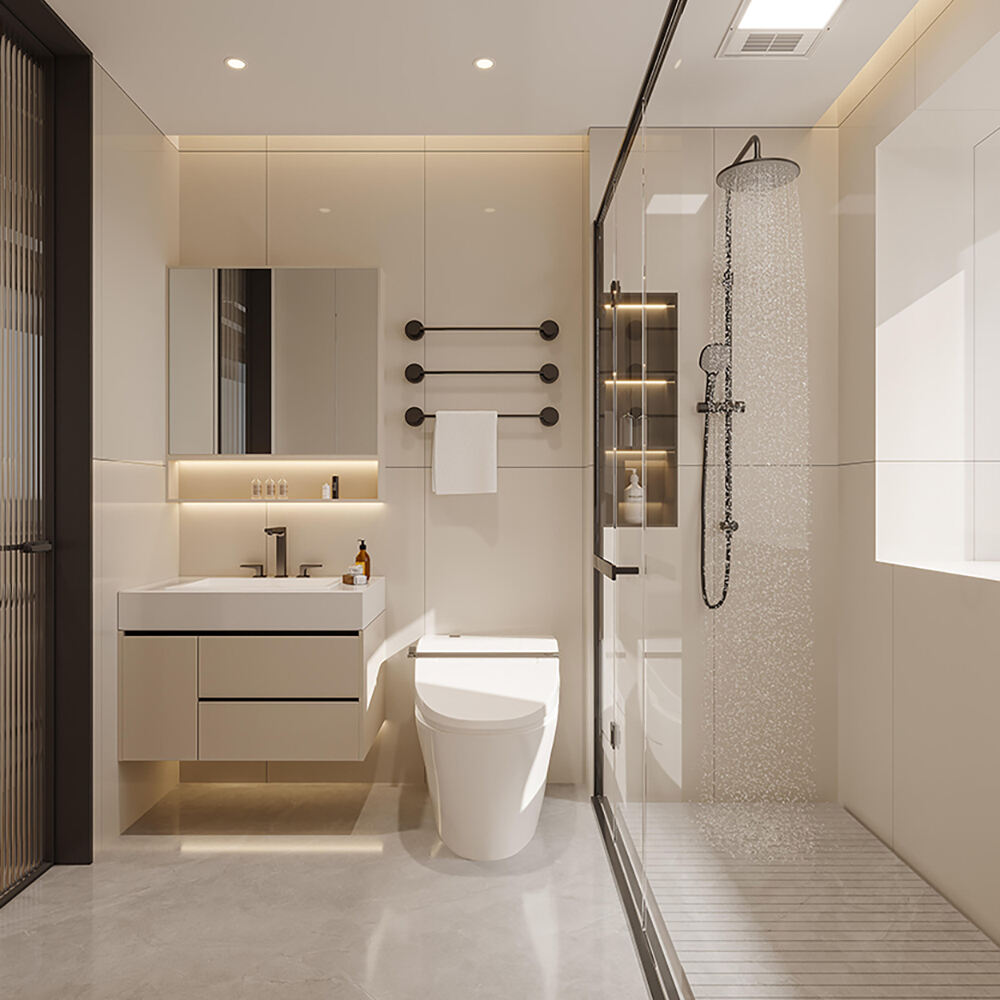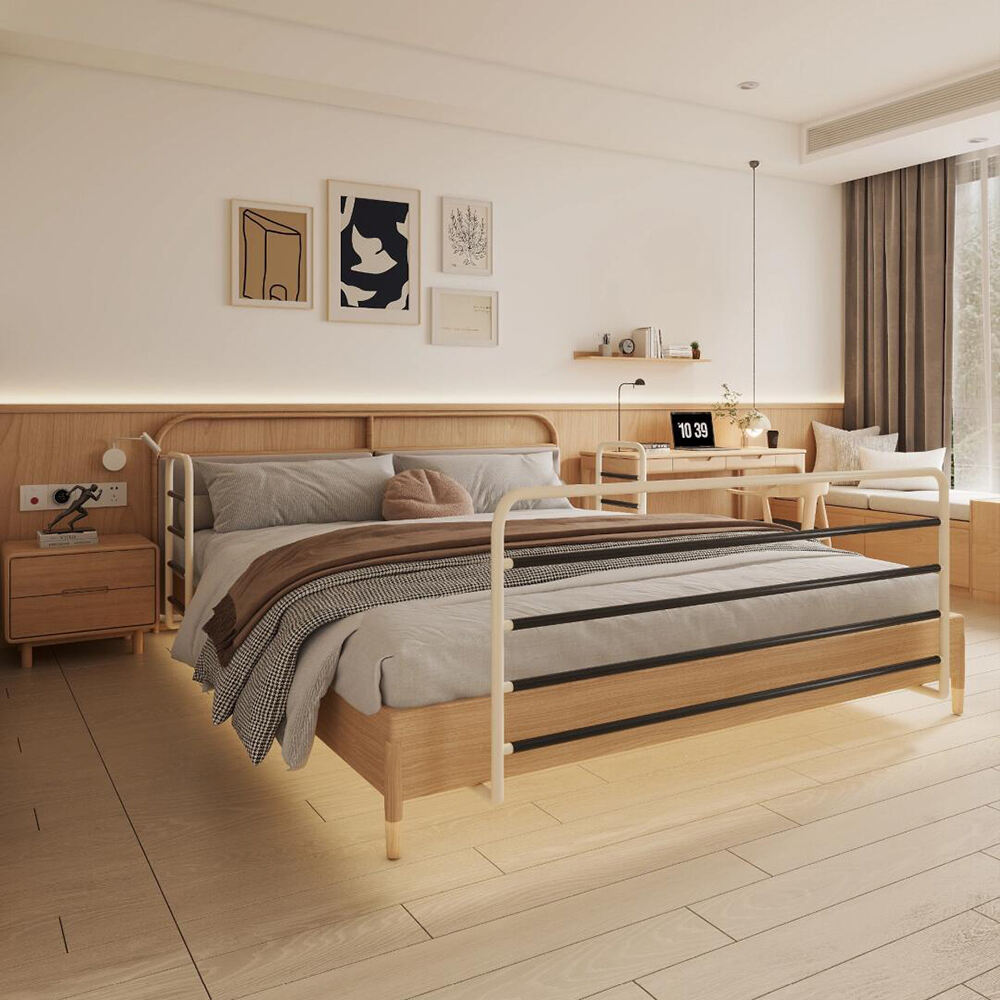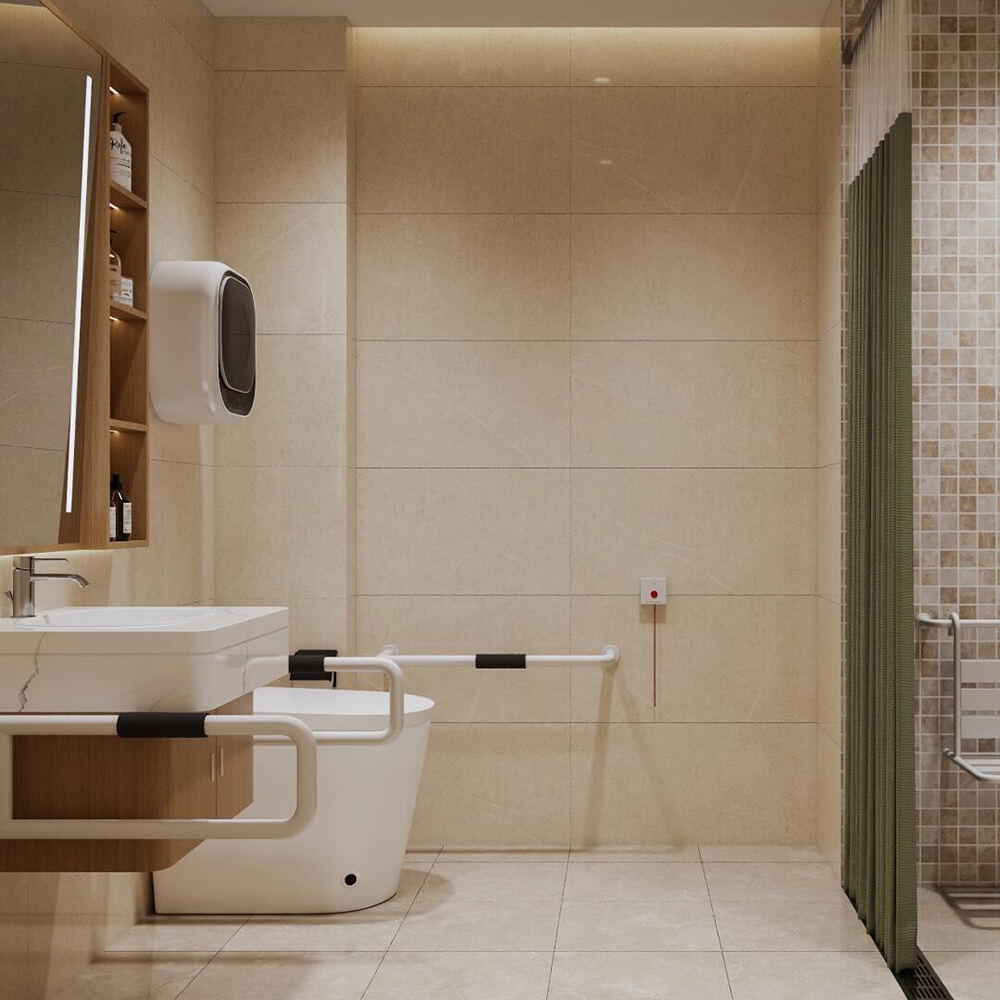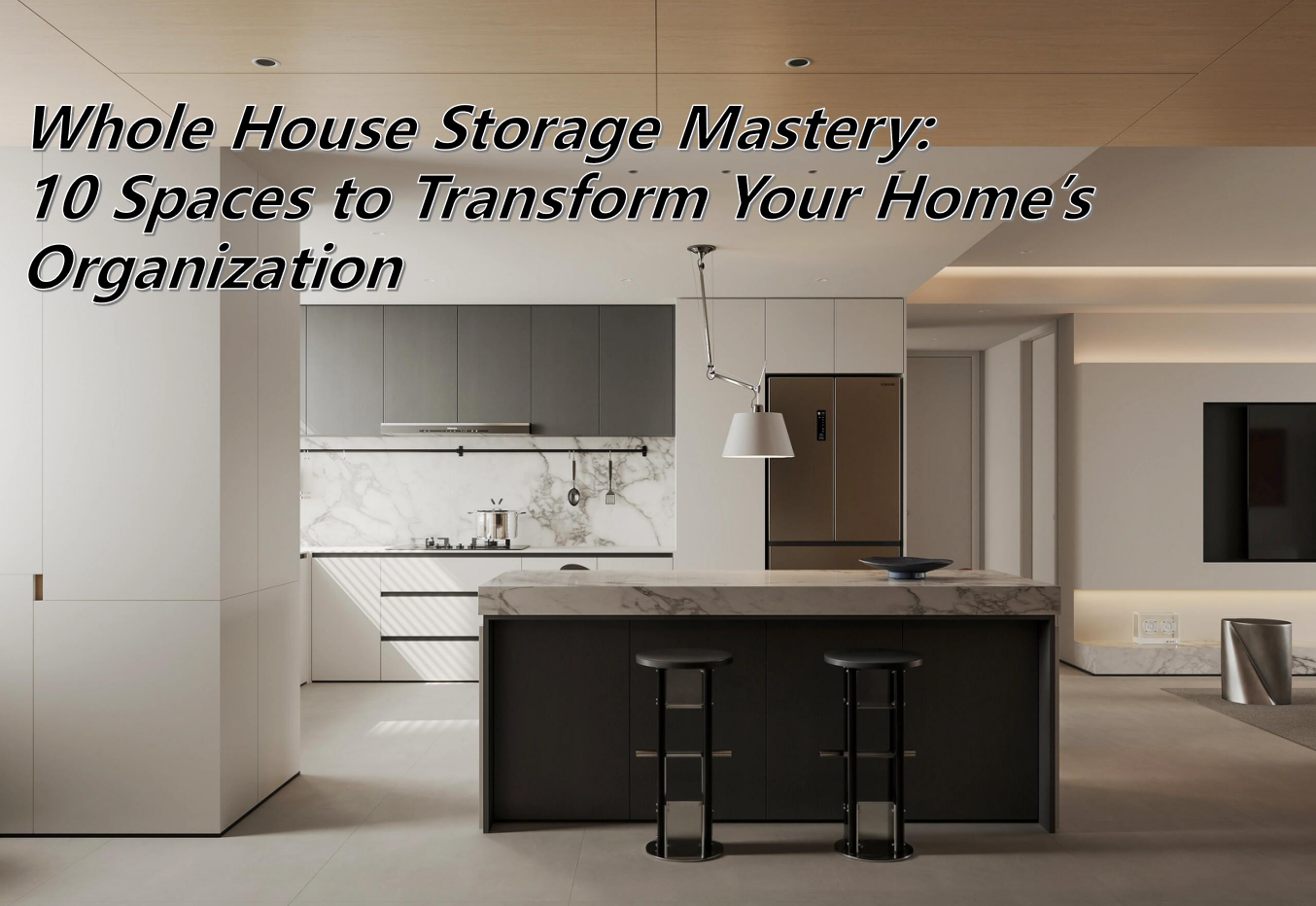Ever dream of a perfectly organized home but end up with clutter just days after cleaning? You’re not alone. Many people struggle with keeping their homes tidy, even after trying countless storage hacks and buying all the “must - have” organizers. The key? A strategic storage plan tailored to each room’s function. Let’s break down how to transform your home with smart storage in 10 key spaces.
Ⅰ.Bedroom
①Wardrobe Zoning: Divide your wardrobe into hanging areas (long and short clothing), folding areas (layered properly, not too high), storage areas, and small items sections.
②Nightstands: Use nightstands to store small odds and ends. They’re perfect for keeping essentials within reach.
③Dressing Table: Opt for a dressing table with drawers. If not, use divided boxes to categorize items.
④Overnight Clothes Area: If your wardrobe has space, design a dedicated spot for overnight clothes. If not, use a simple coat rack to avoid dust buildup.
Ⅱ. Living Room
① The 80/20 Rule: Hide 80% of items and display 20%. Reserve ample storage space to keep clutter at bay.
②Item Positioning: Plan where each item goes in advance for easy access and return.
③Proximity Principle: Store items near where they’re used to make putting things away a breeze.

Ⅲ. Entryway
① Shoe Storage: Reserve a slipper area under the shoe cabinet. If you have a large household, add an extra layer.
②Adjustable Shelves: Use movable shelves inside the shoe cabinet to accommodate different shoe heights.
③Overnight Clothes: If you want to hang overnight clothes, make sure the cabinet has doors to avoid a messy look.

Ⅳ. Kitchen
① Zoning: Categorize items into wall cabinets, base cabinets, walls, countertops, and floors for orderly storage.
②Workflow: Design a logical workflow to reduce space waste.
③Space for Each Step: Reserve space for retrieving, washing, cutting, cooking, and serving to ensure smooth movement.
Ⅴ. Dining Area
① Sideboard: A sideboard is ideal, but if space is limited, use a storage cart.
②Tableware Organization: Categorize tableware by usage frequency and store them vertically to maximize capacity.
③Proximity Principle: Keep storage close to the dining area to encourage tidy habits.
Ⅵ. Bathroom
① Built - in Storage: If possible, create niches in the walls for storage.
②Mirror Cabinet: A mirrored cabinet is a must for skincare lovers. Choose one with doors for large, moisture - proof storage.
③Wall - Mounted Items: Keep frequently used items off the floor for easier cleaning.

Ⅶ. Balcony
① Function First: Decide on the balcony’s purpose beyond laundry—like planting, tea - making, or viewing.
②Detergent Storage: Reserve space for various detergents.
③Housekeeping Zone: If the balcony is spacious enough, turn it into a housekeeping area.
Ⅷ. Children’s Room
① Safety and Comfort: Prioritize safety and comfort. Avoid overly mature designs and focus on the child’s current growth stage.
②Zoning: Separate the study, rest, and toy areas.
③Child - Friendly Storage: Use storage tools that are easy for kids to use, matched to different item types.
Ⅸ. Work room
① Proper Sizing: Choose appropriately sized desks and bookshelves to avoid space waste.
②Bookcase Design: Ensure bookshelves are deep enough for large books. A bookcase with doors keeps books dust and moisture - free.
③Regular Cleaning: Periodically clear out unused books and magazines to keep the desk tidy.
Ⅹ. Elderly’s Room
① Safety First: Focus on safety and comfort, minimizing furniture with sharp corners.
②Handrails: Add handrails as needed for support.
③Separate Storage: Create a zone for old items, separate from daily essentials.
④Easy Access: Minimize steps for retrieving and returning frequently used items.


